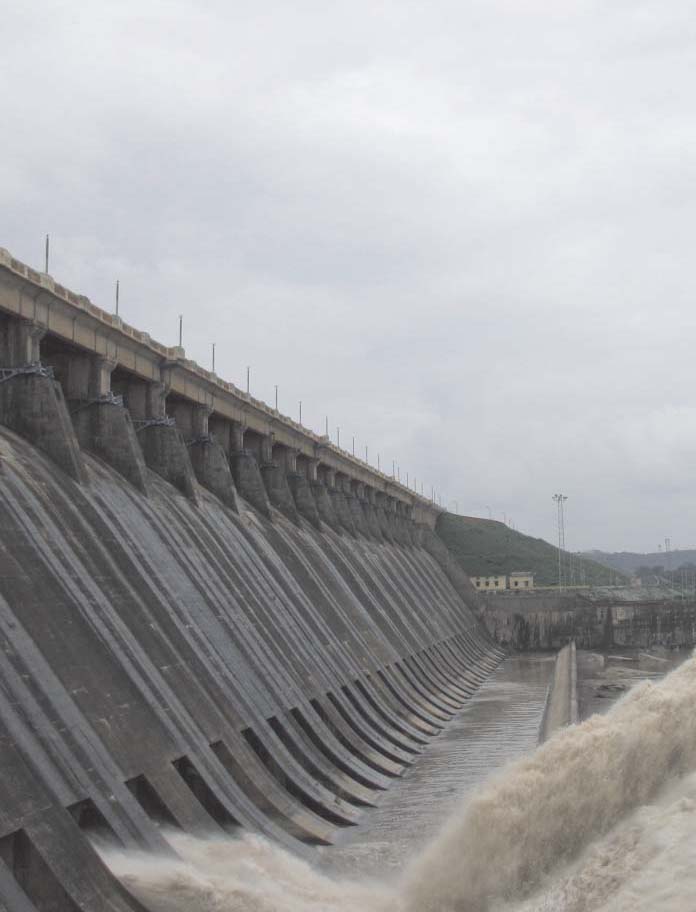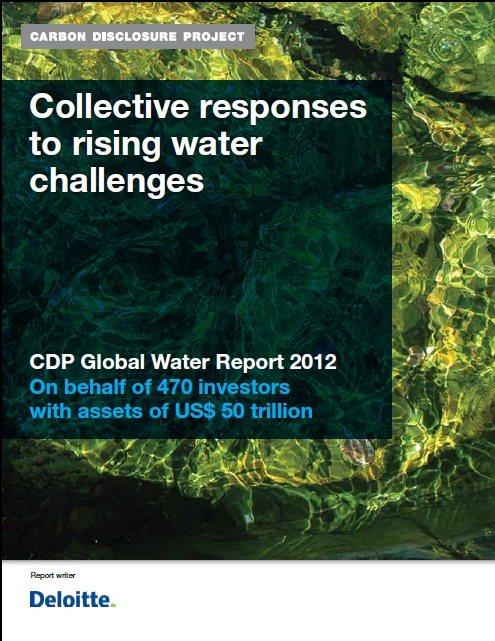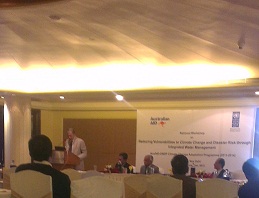/topics/equity
Equity
The risks of increased water efficiency requirements: The carbon disclosure project global water report 2012
Posted on 31 Dec, 2012 08:30 AMA brief note on emerging water challenges in India
Posted on 13 Dec, 2012 09:33 PMThe contemporary Indian social, demographic context is witnessing steady rise in demand over water resources and experiencing crunch in its access and availability, clubbed with livelihoods challenges never before. On the contrary, meager policy instruments, inadequate institutional capacities and lack of machinery in place to address or ensure sustainability of its resources.
Highlights from the 10-year water policy research programme of the International Water Management Institute and the Sir Ratan Tata Trust discussed at the IWMI - TATA Annual Partners' Meet at Anand, between 28-30 November, 2012
Posted on 05 Dec, 2012 02:06 PMIWMI-Tata water policy research programme is a collaborative initiative between the International Water Management Institute (IWMI) and the Sir Ratan Tata Trust (SRTT).
A comprehensive study of gender issues in slums through JAGORI research: News and policy update from India WASH Forum e-newsletter-October (2012)
Posted on 25 Nov, 2012 06:08 PMThis bi monthly e-Newsletter by the India WASH Forum provides excerpts of the JAGORI study from two slums of Delhi in 2010-11 that look at gender concerns in the context of slum sanitation in India and make some very useful recommendations.
National conference by IRRAD and UNICEF on women-led water management: Strategies towards water sustainability in rural India
Posted on 22 Nov, 2012 05:07 PMThe Institute of Rural Research and Development (IRRAD) and UNICEF India hosted this National Conference on Women-led Water Management .
A report on the national conference on women-led water management organised by IRRAD
Posted on 20 Nov, 2012 02:59 PMNearly 70% of India’s 1.2 billion people live in rural areas, many of which face unprecedented water shortages.
Floods, fields and factories: Towards resolving conflicts around the Hirakud Dam
Posted on 27 Oct, 2012 08:13 PM This action research report by the Forum for Policy Dialogue on Water Conflicts in India maps the variegated issues contributing to the water conflicts ar
This action research report by the Forum for Policy Dialogue on Water Conflicts in India maps the variegated issues contributing to the water conflicts ar
Certificate course in microfinance and rural livelihood, Centre for Microfinance, Jaipur, December 2012- March 2013, Apply by 25th November 2012
Posted on 21 Oct, 2012 11:12 PMOrganizers
Centre for Microfinance, Jaipur
About the course








